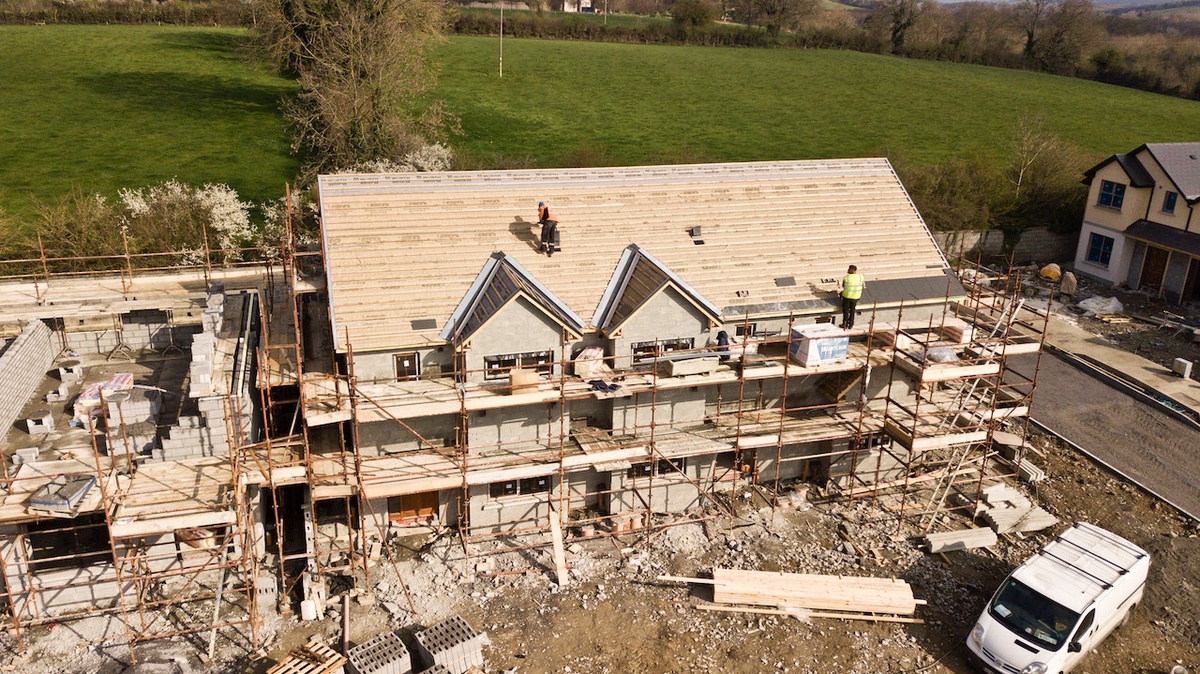Have you ever wondered how a construction project comes together seamlessly, with all parties involved working harmoniously towards a common goal? The secret lies in the foundation of the project—contract types. Like the blueprints that guide the construction process, contract types provide the framework for successful collaboration and project execution. In this article, we will delve into the world of contract types in the construction industry, exploring their significance, different types, and practical applications. So fasten your hard hat and let's get started!
Understanding the Construction Landscape
Before we dive headfirst into the intricate world of contract types, let's take a step back and understand the construction industry as a whole. Think of it as a bustling city, teeming with diverse professionals—architects, engineers, contractors, and suppliers—all working together to erect remarkable structures. However, for this city to thrive and grow, it needs a well-defined set of rules and regulations. Enter contract types.
Contract Types
Contracts in the construction industry serve as the foundation upon which projects are built. They establish the rights, responsibilities, and expectations of all parties involved. Just like different building materials are chosen based on specific requirements, contract types are tailored to suit the unique needs of each project.
In essence, contract types define the scope of work, project timeline, payment terms, and risk allocation. They serve as a roadmap, guiding the collaboration between the owner, contractor, and other stakeholders. By establishing a clear framework, contract types help mitigate conflicts, minimize delays, and foster successful project completion.
So, what are the different contract types commonly used in the construction industry? Let's explore a few of them and uncover their characteristics, advantages, and disadvantages.
1. Lump Sum Contracts
Imagine ordering a mouth-watering meal at a restaurant. You select a dish from the menu, and the price is set in stone—no surprises. Similarly, a lump sum contract in the construction industry fixes the project price upfront, providing both the owner and contractor with a predictable outcome.
In a lump sum contract, the contractor agrees to complete the project for a fixed sum, regardless of any cost fluctuations during construction. This type of contract is particularly beneficial when the scope of work is well-defined, and there is limited potential for design changes. It offers a sense of security to the owner, who can accurately budget for the project.
However, this certainty comes at a price. Contractors often build a buffer into their lump sum contracts to account for potential risks, resulting in higher initial project costs. Additionally, any changes or unforeseen circumstances that arise during construction can lead to disputes over additional compensation. Now, let's move on to our next contract type.
2. Cost-Plus Contracts
Have you ever renovated your home? You might have hired a contractor who agreed to work on a cost-plus basis, where the final bill was based on the actual expenses incurred during the project. Cost-plus contracts in construction function in a similar manner, providing flexibility and transparency.
In a cost-plus contract, the owner reimburses the contractor for the actual costs of labour, materials, and overhead, and agrees upon a pre-determined fee or percentage for profit. This type of contract is often used when the scope of work is uncertain or subject to change. It allows for adjustments along the way, accommodating design modifications or unforeseen challenges.
While cost-plus contracts offer flexibility, they also present challenges. With the absence of a fixed price, owners may face uncertainty regarding the project's final cost. Additionally, if not carefully managed, cost-plus contracts can encourage contractors to inflate costs to maximize their profits. Now, let's explore another contract type that strikes a balance between the two.
3. Time and Material Contracts
Imagine going to a store and picking items off the shelf, paying for each one individually. That's precisely how time and material contracts work in the construction industry—paying for labour and materials as they are consumed. This contract type offers a transparent pay-as-you-go approach.
In a time and material contract, the owner pays the contractor based on the actual hours worked and materials used, plus an agreed-upon profit margin. This type of contract is typically used for small projects or when the scope of work is uncertain. It allows for flexibility, as owners can adjust project requirements along the way.
However, time and material contracts can be a double-edged sword. Without a fixed price, owners might find it challenging to manage costs effectively. Additionally, the absence of a defined scope can lead to project scope creep and potential conflicts over project boundaries. Now that we've examined a few contract types, let's take a moment to recap.
Conclusion
Contract types in the construction industry are like the diverse tools in a builder's toolkit. Each tool serves a specific purpose, and choosing the right one can make or break the project. In the same way, selecting the most suitable contract type is crucial for project success. Factors such as project size, complexity, budget, and risk allocation should be carefully considered.
Additionally, keep in mind that challenges can arise when dealing with contract types in construction. Lack of clarity, poor communication, and unforeseen events can complicate matters. To navigate these challenges effectively, it's essential to establish open lines of communication, set realistic expectations, and maintain a proactive approach. By doing so, you'll lay a solid foundation for successful collaboration.
Now that we've explored the ins and outs of contract types in the construction industry, you're equipped with a comprehensive understanding of their significance, characteristics, and practical applications. So go forth with confidence, armed with the knowledge to choose the right contract type for your construction projects, and watch as your visions turn into magnificent realities.


No comments yet